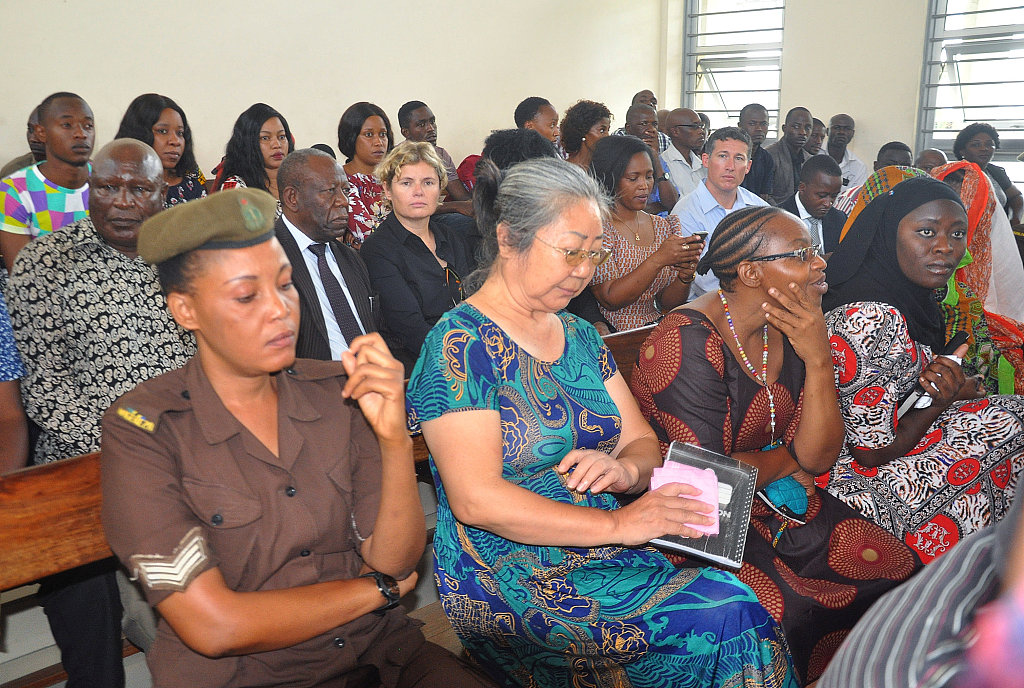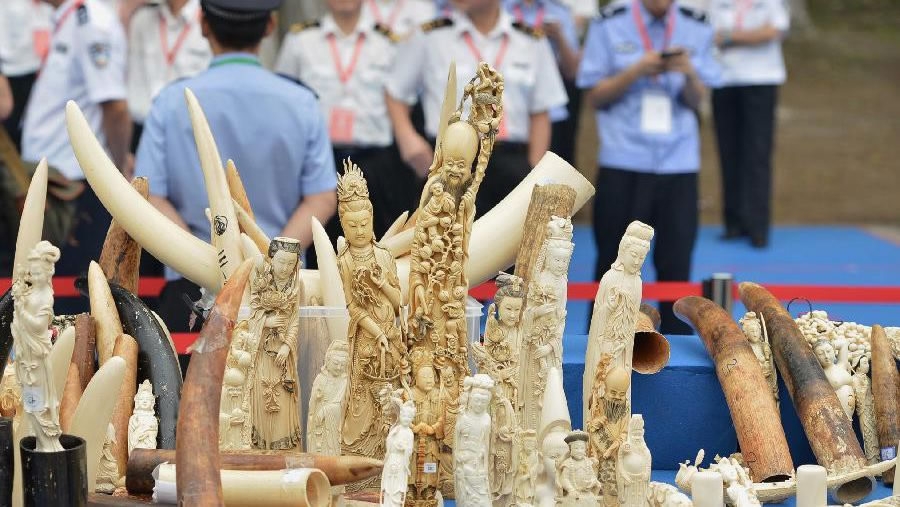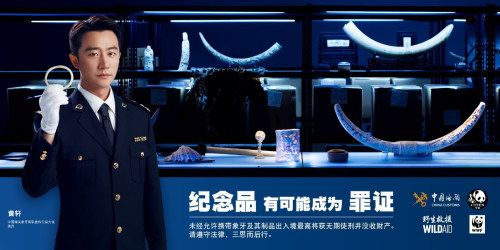China pledged to stop the ivory trade, a move that is widely seen as a possible game-changer in the global fight against the poaching of elephants.

Chinese businesswoman Yang Feng Glan, dubbed the "Ivory Queen", sits inside the Kisutu Resident Magistrate's Court in Dar es Salaam, Tanzania February 19, 2019. (Photos: VCG)
A Chinese woman, nicknamed the “Queen of Ivory” and thought to be one of Africa's most notorious traffickers, has been sentenced to 15 years in prison, CNN reported on Tuesday.
A Tanzanian court found Yang Feng Glan guilty of smuggling 860 elephant tusks that authorities say are worth $6.45 million.
Yang, 70, was also fined $12.9 million under Tanzania's Wildlife Protection Act.
The court’s ruling has alarmed those who are still trying their luck and attempting to smuggle ivory and ivory products from Africa.
In the eyes of Africans, Chinese people might be assumed to be enthusiastic about buying ivory and rhinoceros horn products.
This demand could be seen as the direct cause of the rapid decline in the population of these endangered species in Africa.
Yang’s case might lead to further such assumptions.
However, as a member of CITES (The Convention on International Trade in Endangered Species of Wild Fauna and Flora), the Chinese government has been actively cracking down on ivory smuggling.
In 1990, China announced a ban on the sale of ivory and ivory products obtained after 1975.
On December 30, 2016, the General Office of the State Council released a notice on stopping the commercial processing and sales of ivory and ivory products, giving a deadline for full completion December 31, 2017.

Chinese customs officers show the confiscated illicit ivory products. (File photo: CGTN)
China’s legitimate moves have been praised by the international community as the "most powerful blow" against illegal ivory transactions.
Some African countries have indicated that these pragmatic measures in China will help cut the value chain of the ivory trade from the source, with a profound impact on the protection of African elephant species, Africa and the global ecosystem. Meanwhile China’s law reinforcement will play an important role in the closure of the world's major ivory trade market.
Meanwhile, China has stepped up efforts on publicity against the ivory trade. Many Chinese travelers will receive text messages saying "Do not illegally buy and carry ivory and other wildlife products to and from the country" after leaving the country. Super stars also participated in massive public service announcement campaigns.
Chinese people are encouraged to stop purchasing endangered wildlife products and to choose sustainable lifestyles to protect the environment.

Public Service Advertisement "Souvenirs May Be Evidence of Crime" jointly released by the Chinese government and the International Animal Protection Organization in 2019.
Some Chinese are fighting against the smuggling of endangered wildlife and its products.
The Ivory Game is a 2016 American documentary film, which examines the ivory trade in China and Hong Kong, and the repercussions of elephant poaching if it is allowed to continue. In China, Andrea Crosta, who is head of investigation for Wildleaks, a whistle-blowing site for “wildlife crime,” and Huang Hongxiang, an investigative journalist, went undercover to gather evidence of illegal importing and selling of ivory.
In order to improve the image of the Chinese “ignoring the protection of wildlife,” Huang volunteered not to have his face covered by a digital mosaic in the film, even though it means his personal safety will be threatened.
Protecting endangered wildlife is by no means a task that one or a few countries could accomplish.
In fact, after the strict ban on the ivory trade in mainland China, the local ivory market in Japan, Vietnam, Cambodia, Laos and Hong Kong, as well as in Africa, is still active, even targeting Chinese tourists.
To completely break this chain of interests, we need to cooperate with all countries in the world.


